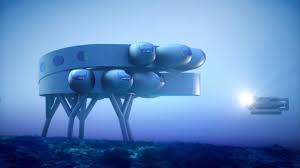
Breaking News
 The Days of Democracy Are Over
The Days of Democracy Are Over
 Elon Musk Described an AI Device to Replace Phones in 5 Years
Elon Musk Described an AI Device to Replace Phones in 5 Years
 Deposit Insurance For Billionaires?
Deposit Insurance For Billionaires?
 Rep. Troy Balderson Is Right: Coal And Gas Drive Affordable, Reliable, And Clean Energy
Rep. Troy Balderson Is Right: Coal And Gas Drive Affordable, Reliable, And Clean Energy
Top Tech News
 Graphene Dream Becomes a Reality as Miracle Material Enters Production for Better Chips, Batteries
Graphene Dream Becomes a Reality as Miracle Material Enters Production for Better Chips, Batteries
 Virtual Fencing May Allow Thousands More Cattle to Be Ranched on Land Rather Than in Barns
Virtual Fencing May Allow Thousands More Cattle to Be Ranched on Land Rather Than in Barns
 Prominent Personalities Sign Letter Seeking Ban On 'Development Of Superintelligence'
Prominent Personalities Sign Letter Seeking Ban On 'Development Of Superintelligence'
 Why 'Mirror Life' Is Causing Some Genetic Scientists To Freak Out
Why 'Mirror Life' Is Causing Some Genetic Scientists To Freak Out
 Retina e-paper promises screens 'visually indistinguishable from reality'
Retina e-paper promises screens 'visually indistinguishable from reality'
 Scientists baffled as interstellar visitor appears to reverse thrust before vanishing behind the sun
Scientists baffled as interstellar visitor appears to reverse thrust before vanishing behind the sun
 Future of Satellite of Direct to Cellphone
Future of Satellite of Direct to Cellphone
 Amazon goes nuclear with new modular reactor plant
Amazon goes nuclear with new modular reactor plant
 China Is Making 800-Mile EV Batteries. Here's Why America Can't Have Them
China Is Making 800-Mile EV Batteries. Here's Why America Can't Have Them
See the $135 million underwater lab designed by Fabien Cousteau and Yves Béhar

Sixty feet. It doesn't sound like much. But under the weight of water, that short distance is enough to triple the pressure of our normal atmosphere. It's about as far below the surface as humans can live, a strange, isolated place where voice pitch goes up, cuts heal faster, rashes spread with abandon, and batteries deplete more quickly. Which is why Fabien Cousteau, ocean researcher and grandson of Jaques Cousteau, likens the challenge of building an underwater lab to crafting the International Space Station (ISS).
And that's just what he wants to build. An underwater ISS. Called Proteus, Cousteau has been fundraising an unprecedented lab, where researchers can come from across the globe to study the ocean for weeks or months at a time. The price tag? $135 million.

 China Innovates: Transforming Sand into Paper
China Innovates: Transforming Sand into Paper

